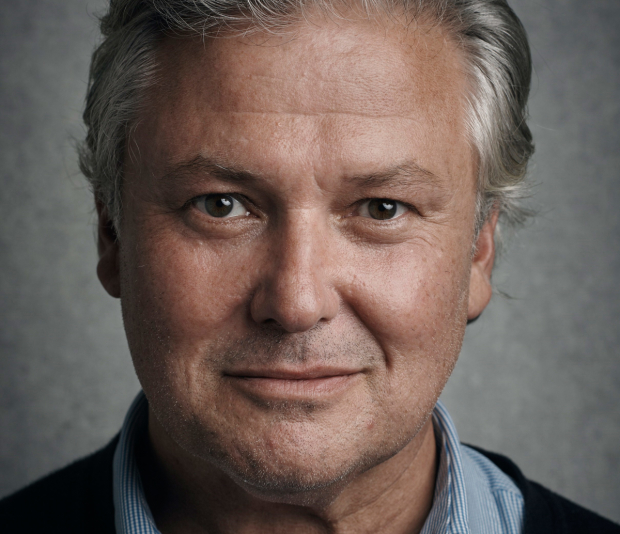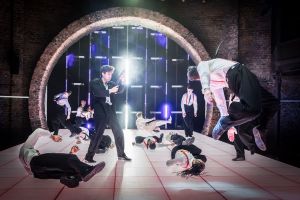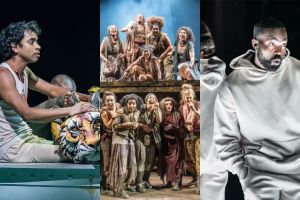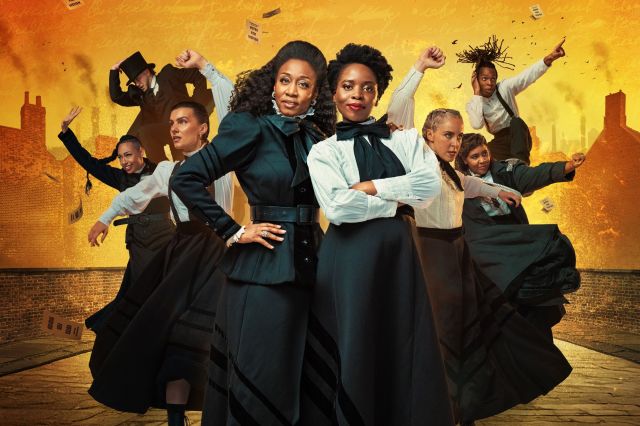Conleth Hill: I resisted doing Game of Thrones for a long time
The ”Game of Thrones” actor on Peter Dinklage and working opposite Imelda Staunton in the new production of ”Who’s Afraid of Virginia Woolf?”

© Charlie Gray 2016
The Northern Irish actor Conleth Hill is probably now most well known for his steely, scheming bald-headed eunuch Varys in the hit TV series Game of Thrones. But Hill has graced our screens and stages for a long while before that, working with comedy legends such as Victoria Wood and Jennifer Saunders and working in theatres such as the National, the Lyric Theatre, the Royal Exchange in Manchester, in the West End and on Broadway. In his last London stage role he starred opposite Rowan Atkinson in Quartermaine’s Terms in 2013 and now he’s back in the capital, starring opposite Imelda Staunton in Edward Albee's searing play Who's Afraid of Virginia Woolf?
Who’s Afraid of Virginia Woolf? Is known for being intense, has it been hard work so far?
Yes. It’s one of the hardest things I’ve ever attempted. That’s mainly to do with the sheer volume of lines. It’s a lot of words. But it’s a brilliant cast, director, crew, so…
Had you seen the play before you took it on?
I had never seen a production or the movie. But I was a fan of Albee’s writing and I liked the play when I read it. I loved his other plays so I was thrilled to be asked to do it. I am enjoying it, as tired as I am and as hard as it is, I am really enjoying it.
The show was announced just after Edward Albee had passed away, did you get to meet him?
No. He had to approve the casting of Imelda and myself and I think that was one of the last things he did. I hope we didn’t finish him off.
The play is notoriously difficult to watch as a married relationship breaks down onstage, would you say it was about marriage?
Two married couples are involved, but I don’t think I would. It’s not straightforward. It’s sort of about how different people cope in different situations. It’s set in the early '60s in a New England college and one older member of staff and his wife are hosting a younger member of staff and his wife. It takes place in real time. It’s a great study of society, of academia and also of America. There’s a lot of advice offered to the younger characters and they don’t want to take it. It’s about game playing.
You play George opposite Imelda Staunton who plays Martha – did you know who would be playing Martha before you took the role?
Yes, I think I am only doing it because she recommended me. We worked together on Victoria Wood’s last drama called That Day We Sang and we had talked about working together.
The two characters have to be pretty vile to each other, do you have to prepare for that?
To be brutally honest, no. The script does all the work for you. Albee is very informative. It’s almost like music. He’s very specific, the writing is so good.
Has Game of Thrones made it difficult to fit in theatre and film too?
Not really. It’s such a large cast that you are never overused. It’s not so taxing. I suppose earlier in my career I wouldn’t have been able to do film and TV as much because I would have been in a play for so long. I did a lot of long runs when I was younger. But with Game of Thrones we do six months a year at the most. So when you’re not working on it you get to do something else. It’s a bit like being semi-retired.
So you can pick and choose?
It’s a very great and rare thing for an actor to have that. So I suppose Game of Thrones has given me financial independence. But it’s never been about the money for me. I always did things I really wanted to do.
Your GoT storylines involve a lot of Peter Dinklage, is he great?
He’s a wonderful human being and a fantastic actor and a great friend.
Were you expecting Game of Thrones to take off like it did when you first started on it?
No, not at all. I had no idea. I think there’s only 15 of us who have survived so far too. I resisted doing it for a long time too. I kept thinking: 'I’m not interested in that kind of thing'. And I think some people think that about watching it too. But that’s fine, because we have enough people watching it without them. The writing is exquisite, the production values are second to none. I am proud to be part of it. It’s the best job in the world. I’ve always said that.
How did you get into theatre?
I did school plays and then went to art college for a year, had a year out and then went to Guildhall and trained there. I’ve been mainly working since ’88, but it was Stones in His Pockets in 99 that made me more known to theatre audiences.
You’ve worked with a lot of comedy actors too, was it part of the plan?
I’m the June Whitfield of my generation, although not as good, obviously. I never had a plan, if it was good writing then I would just got for it. I’ve been really lucky.
Who's Afraid of Virginia Woolf? opens this Thursday and runs at the Harold Pinter Theatre until May 27.












